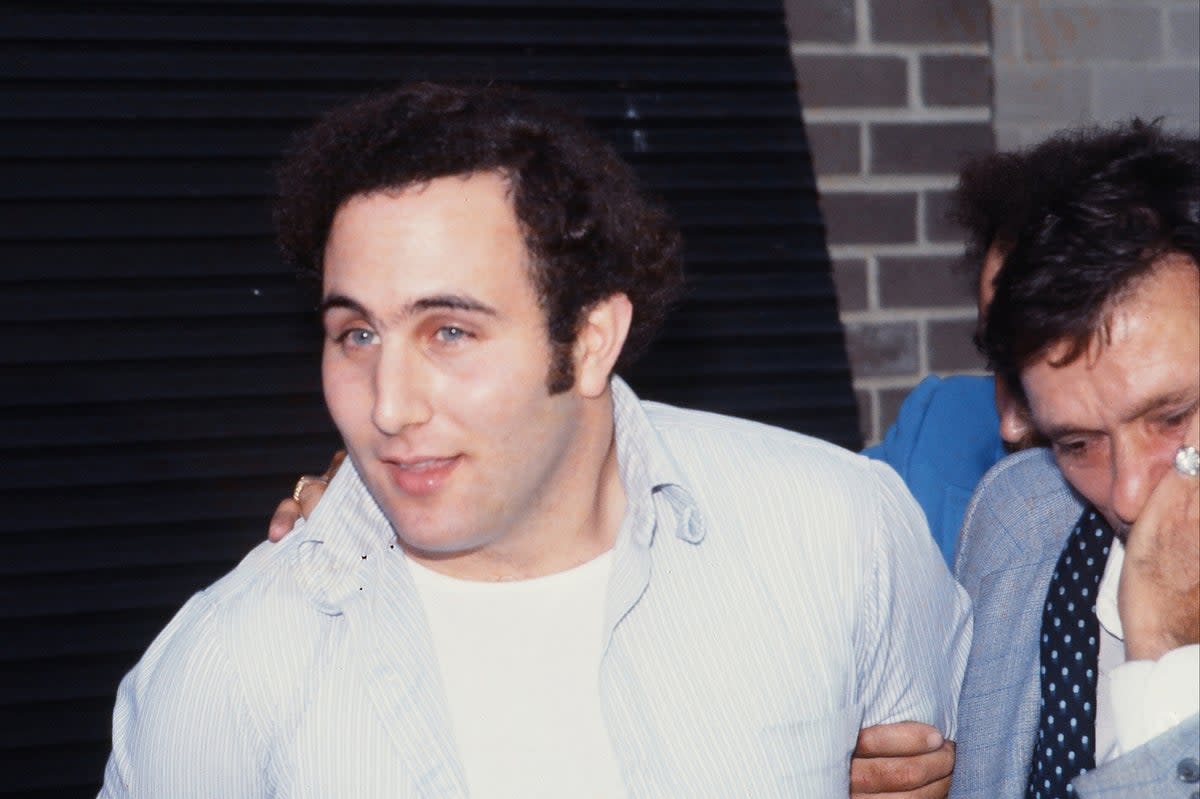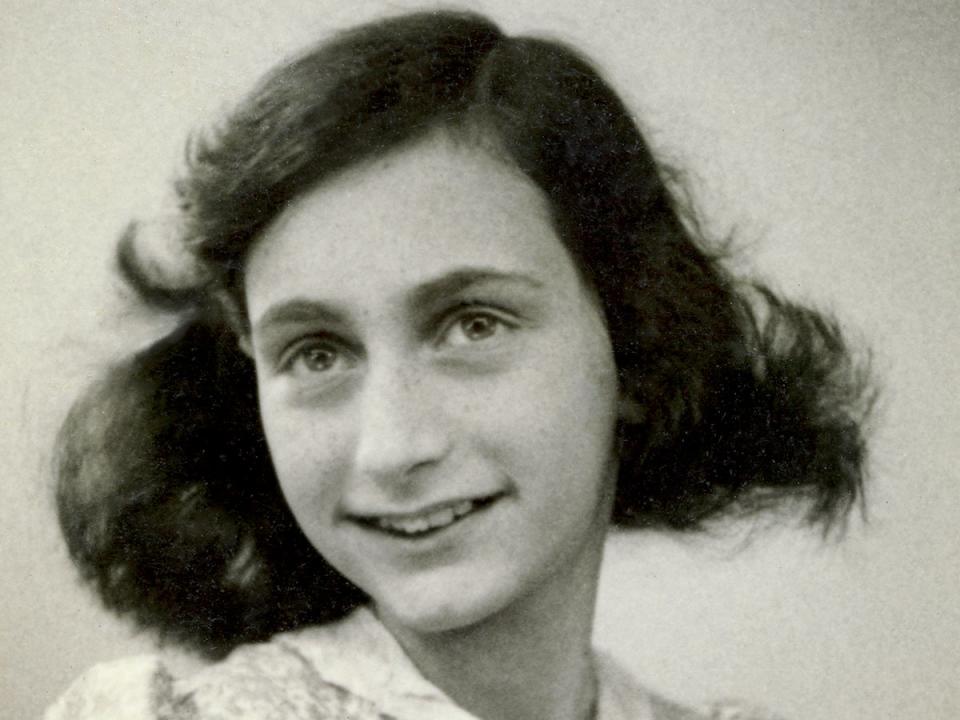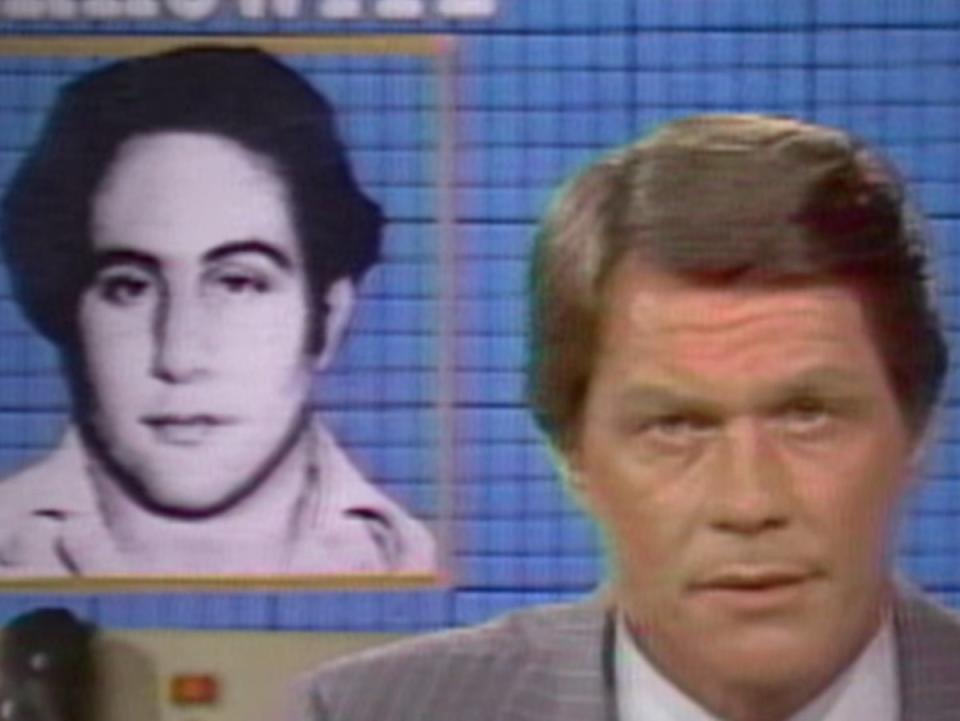Son of Sam serial killer says he uses Anne Frank’s holocaust diary as inspiration

- Oops!Something went wrong.Please try again later.
“Son of Sam” David Berkowitz says he hopes he can inspire people from his prison cell in a similar way to how Anne Frank’s World War II diary inspired millions.
Speaking days before facing a parole board, Berkowitz, who killed six people in New York City in the 1970s, told The New York Post the Jewish girl’s book has been more inspirational for him than the Bible.
“She impacted the lives of millions,” Berkowitz told the outlet. “Little Anne changed the world with a pen. So I ask myself, what can I do with my trusty typewriter? Maybe I can change lives, too, with my message of hope in God?”
The serial killer made the comparison in his interview with the Post days before his 12th parole board hearing over his murders in the boroughs of Brooklyn, Queens and the Bronx.
The killing spree began on July 29, 1976, when the then-23-year-old shot Donna Lauria, 18, and wounded Jody Valenti, 19.

In the months following, he left five others dead and six more wounded. His main choice of victim appeared to be young women with long, dark hair, as well as couples sitting in cars.
On April 17, 1977 Berkowitz left a note after killing couple Alexander Esau, 20, and Valentina Suriani, 18.
“I am a monster. I am the Son of Sam,” he wrote. “I love to hunt. Prowling the streets looking for fair game tasty meat.”
As fear spread across the city, with women cutting their hair and wearing wigs to avoid being targeted, Berkowitz also wrote to tabloid newspapers to tease the New York City Police Department as they searched for him.
“Hello from the gutters of NYC, which are filled with dog manure, vomit, stale wine, urine and blood … Sam’s a thirsty lad and he won’t let me stop killing until he gets his fill of blood,” he wrote to Daily News columnist Jimmy Breslin.
When he was finally caught on August 10, 1977, the killer asked police: “What took you so long?”
Berkowitz later explained that his neighbor Sam’s dog had told him to carry out the killings.
He faced three mental exams and was found fit to stand trial. He pleaded guilty to all charges and was handed six 25-years-to-life sentences. Berkowitz became eligible for parole in 2002 and has faced a parole board every two years since.
He claims to have found God, but in this latest interview referred to Anne Frank as an inspiration as someone else “in captivity.”

“Young Anne wrote her diary while in captivity. She shared her heart within its pages,” the 70-year-old said of the girl hiding from Nazis during the Holocaust and whose diary became one of the prominent voices of life during the Holocaust.
“Little did she know the influence her life and her writings would have in the future,” he told the Post.
Berkowitz has referred to himself as the “Son of Hope” since finding religion in the late 1980s and has previously said he deserves to be in prison for the rest of his life for his crimes.
He sees himself as a “father figure” to other inmates, he told the Post, and now appears to want to share his beliefs and experiences more widely.

The convict said he would attend his upcoming hearing in order to not show defiance to those in authority, after skipping some in the past.
“Most of all, I attend in order to openly apologize for my past crimes and to express my remorse,” he added.
“And I also attend so that I may share my faith in God, and how He can forgive, heal and restore even the ‘worst’ of offenders.”

